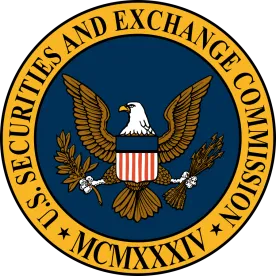In New York Stock Exchange LLC v. Securities & Exch. Comm., 2020 WL 3248902 (D.C. Cir. June 16, 2020), the United States Court of Appeals for the District of Columbia Circuit invalidated the Securities and Exchange Commission’s (“SEC”) experimental transaction fee pilot program to study the market effects of broker-dealer incentive programs used by domestic stock exchanges. The Court of Appeals held that the SEC lacked the authority under the Securities Exchange Act of 1934 (“Exchange Act”) to compel the exchanges to conduct what amounted to a “costly experiment” to see how the fees these exchanges charge and the incentives they offer “might” affect the trading habits of market participants. The ruling demonstrates a judicial willingness to curb the SEC’s rulemaking authority under the Exchange Act for merely experimental policies.
The program, approved in 2018, was created to study the effects that transaction-based fees, and rebates paid by exchanges to brokers for stock orders influence broker behaviors and the markets generally. Many exchanges pay a per-share rebate to broker-dealers to encourage them to route and execute customer orders on their exchanges. The pilot program divided securities into two test groups and applied certain restrictions on the transactions fees and rebates exchanges could offer for these securities. The program was designed to collect data to facilitate an empirical evaluation of the practices to determine whether regulatory action was needed.
The pilot program triggered a vigorous debate on Wall Street. The plaintiff exchanges, including the New York Stock Exchange and Nasdaq, brought suit seeking review of the rule creating the program, Rule 610T of Regulation NMS. They asserted that rebates are needed to compensate brokers for providing liquidity while doing nothing to harm the market. Further, the exchanges alleged that the rebate practice benefits investors and issuers by establishing high quality prices for securities that are transparent to the public.
Institutional and retail investors, on the other hand, disfavored the rebates and welcomed the pilot program. The investors contended the transaction fees incentivize brokers to send orders to exchanges offering the largest rebate, and thereby creating conflicts of interests that may not provide the best result for the client. Further, they argued the rebate practice undermines market transparency by permitting display of prices that do not always account for the rebates and transaction fees, and divert money away from private exchanges not accessible to the general public, also known as “dark pools.”
The Court of Appeals held that the SEC adopted the pilot program without any actual regulatory agenda and without knowing whether or not the data gathered from the program would actually be useful. The Court noted that, in so doing, the SEC acted solely to “shock the market” to collect data in order to consider whether or not to regulate the conduct in the future. The Court of Appeals held that this unprecedented action “clearly exceeded” the SEC’s authority under the Exchange Act. The Court of Appeals took issue with the program’s speculative nature and lack of any definitive future regulations, especially given the pilot program would have “serious, market-altering effects.” These effects include diverting money from public exchanges into dark pools as well as potentially disadvantaging the companies selected for one of the two test groups while competing companies avoided the pilot program altogether.
This ruling is a win for stock exchanges, which can continue to employ transaction fee structures and rebates programs designed to attract business. The decision also reflects a judicial willingness to restrain the SEC’s aggressive approach to exercising its Exchange Act rule-making authority where this approach presents the potential of producing market-altering results.


 />i
/>i

